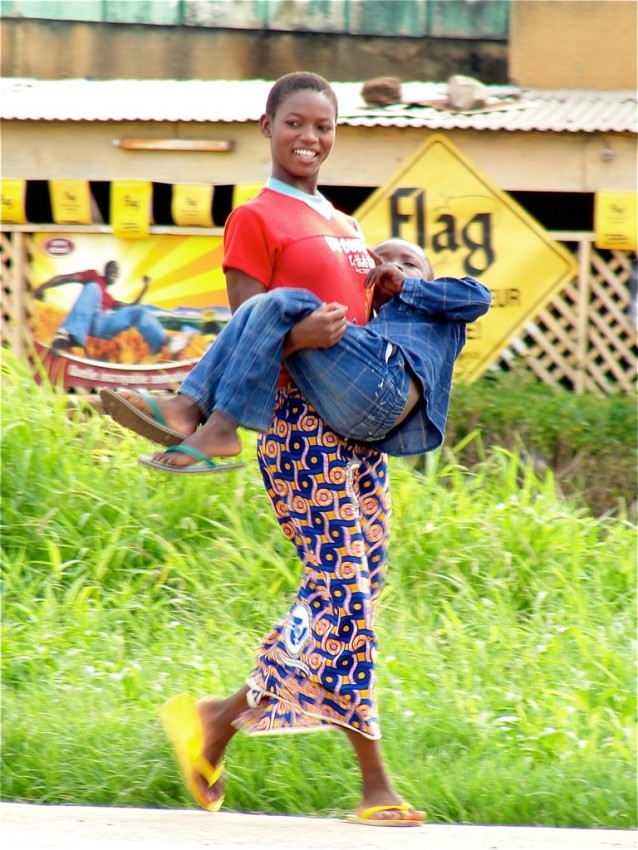Adopting internationally presents families with a unique challenge. Should they pursue international adoption, they will be parenting a child from a different culture than themselves. Families who are adopting from Burkina Faso may find that their friends and family are also unfamiliar with the culture.
Burkina Faso is often described as a “melting pot of people”. The 16.3 million citizens of this African country are called Burkinabe and officially consist of 63 ethnic groups who all speak a variety of dialects and languages. Although French is the official language of Burkina Faso, in the countryside many people speak their local languages such as Moore, Dioula and Fulfulde. The country usually lives in relative harmony and tolerance for people of different religions is high. Historically, Burkinabes have a strong sense of community and commonly intermix with each other. When you understand that Burkina Faso is about the size of Colorado where only 5.3 million people live, you can see that it is amazing that this many people with such identified differences can get along so well!
There is a thousand year old cultural tradition practiced in Burkina Faso called Rakiire, or joking, which helps to increase Burkinabe cohesion. Two kinds of Rakiire are practiced. The first is utilized among members of the same family, such as between grandmother and grandson. The second type is cross ethnic joking and is used by two or more ethnic groups to make an agreement that includes mutual support and non-aggression.
Rakiire usually involves the use of some harsh words, often insults, but it is done in a way to increase tolerance of others and teach non-aggression. It expresses membership in a community in a humorous way. It often fosters friendships and fraternity among differing people and teaches social groups how to live together peacefully. Rakirre can also be used to actually diffuse conflicts; it never leads to fighting. In fact, it actually allows people to have fun!
H ere are two examples of Rakiire as provided by Paul Henri Kabore:
ere are two examples of Rakiire as provided by Paul Henri Kabore:
“Grandmother, I see you are still here. I am surprised you have not died yet.”
“Naughty child, I will survive you.”
The grandmother and child laugh and hug each other knowing that their bond is strong and able to withstand anything. Family and the elders are very respected in Burkina Faso.
“Hello, how is your good-for-nothing father doing?”
“Hi! My father is well. How about your wreck of a father?”
Those involved in the conversation enjoy laughs, shake hands and, at the same time, exchange a greeting that is warm, playful and extends the exchange to openly recognize another person’s family—another societal tradition in Burkina Faso.
This dynamic practice does have some accepted rules, however, especially as it relates to insulting family members. For example, if you use Rakiire to insult someone’s parents, you can only direct it towards the father. You cannot insult the mother because she is probably from another ethnic group. Christians who practice Rakiire generally use kinder words and exchange only funny jokes with each other. Regardless, it is a way of encouraging harmony.
Alain-Joseph Sissao, in his book Alliances and Cross-ethnic Joking in Burkina Faso, describes how Rakiire makes it possible for Burkinabes to remember that the person in front of them is not their enemy, but instead someone with whom they can maintain a relationship despite any situation. He notes that with society becoming more modern in Burkina Faso, the practice of Rakiire is becoming known more as folklore in the cities and only practiced in the rural areas. An organization called Association Burkinabe pour la Promotion de la Parent`e `a Plaisantere has established three official cross-ethnic joking days in Ouagadougou to help keep the tradition alive in the cities.
When adopting internationally, and certainly when completing an African adoption, parents are always encouraged to share the country’s traditions and culture with their adopted children and find ways of promoting it in their home. If you choose to adopt from Burkina Faso, remember that the tradition of Rakiire encourages tolerance, harmony, cohesion, peace, fraternity, non-aggression, and playfulness. What wonderful goals to strive for within one’s family and community!
For more information on adopting from Burkina Faso, please contact us.
Photo Credit: Jeff Attaway
